Just in case there are any scholars who aspire to attend University.
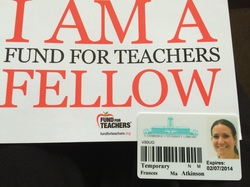 So, the manuscripts at Cambridge University Library are amazing. Once again, it was a serendipitous experience: a novice American "primary" teacher wanders into the manuscripts room at the University library and points to a page of primary materials that are available. The manuscripts helper looks at her quizzically and asks what specifically she wants. She shrugs her shoulders and says, "Anything! This is just too exciting!" He then pulls indices of the records from World War II, but in her ignorance, she thinks he is actually pulling the sources. Again, her joy is met with a strange look as he prompts her to fill out a "fetching card" before they "stop fetching" at five p.m. She nods affirmatively, and finally understands what she is looking at is not the actual sources, but an index of the sources available. After three tries of asking for a source to be fetched (she can't quite discern how the sources are housed at the different institutions; evidently, Christ's Church resources CANNOT be found at the University Library's sources), she, in a panic to meet the five p.m. deadline, hastily asks for Viscount Templewood's correspondence about "Human Rights from 1944-1947." When the speeches and letters finally arrive, she weeps over the pure magic of it all; whomever this Viscount Templewood (real name, Sir Samuel Hoare) was, she is looking at his speeches with his handwritten notes on it. The University LIbrary's staff smiles patiently at her, but does not quite understand the power that these seventy year old documents have over her. ... and it is with that stage that has been set that I discovered Templewood: "The Law of Humanity (a minimum standard for Europe): 'The fact that Germany, a country once regarded as a civilized state, abolished the most elementary human rights, is an extremely serious danger-signal. Where is the guarantee that a similar development might not emerge in other countries?... “Mankind has to be protected from a repetition of the German example. It should be recognized that beastality does not confine itself to the land where it was born and attained mastery. The evil proved to be more dynamic and more contagious than the good. This is the reason why a country where the law of humanity has been abolished becomes a danger to all other countries...Among the measures of a national character the incorporation of the Law of Humanity into the different state constitutions as a completely separate part could gradually gain a decisive role in the protection of human rights in any political development. This Law of Humanity should become the minimum standard for Europe...'" Now, I have no real context of where these speeches were given, and I now only know a very little about Viscount Templewood, but certainly, anyone arguing at such a high level (he spoke at the Royal Institute for International Affairs on Tuesday, November 20th, 1945) for the respect of the individual should be someone who is included in the dialogue about the Upstander. It is these magical moments that I treasure in my novice research experience. I had never heard of Templewood, and had I not become a temporary member of the University Library, I might not ever have found him. My time in Cambridge has come to an end, sadly, but I am traveling to London and cannot wait to research there. I might even get a temporary British Library ID!! At Cambridge University Library, an exhibit entitled "Literature of the Liberation: The French Experience in Print 1944-1946" provided many powerful examples of the role an individual can have in trying to resist evil. From children's books to photographs, newspapers to books of poetry, popular authors (Camus) to watercolors, the voices that rose in order to document the injustices experienced in the world offer us a chance to reflect on choices in our world and the need to make choices that respect the individual. In the forward to the guide, Charles Chadwyck-Healey, who donated his collection for the exhibit, writes, "The book has always been central to French culture, and in this exhibition it is possible to see the extraordinarily beautiful and well-produced books that were published in France at a time when the country had regained its freedom but remained in a troubled and at times chaotic state." The exhibit was divided into twelve themes: (1) Liberation of Paris, (2) Fallen Heroes, (3) Prisoners' Books, (4) Poetry and Song, (5) Humour, (6) Children's Books, (7) Le Silence de la mer, (8) De Gaulle and the Liberated Cities, (9) Orandour-sur-Glane, (10) The Writer's Response, (11) Grand Books, and (12) Military and the Maquis. Of the twelve themes, I found the Prisoners' Books, the Liberation of Paris, and the Military and the Maquis most engaging.
The text above the Prisoners' Books ended with "by 1946, public interest in survivor testimony waved, partly because it brought French population face to face with the implications of their collaboration with Nazism." This is exactly what my two students discovered in their research about Vichy for National History Day, and two of the experts listed in the exhibit guide are experts we've read and with whom we've communicated. Looking at Henri Calet's Les murs de Fresnes (from the guide: "...[the book] describes the individual cells in Fresnes prison on the outskirts of Paris after the Germans had left") and Pelagia Lewinksa's Vingt mois a Auschwitz/avec un avent-propos de Charles Eube et un poeme de Paul Eluard (from the guide: "The first book published in France by an Auschwitz survivor...for her, normal life was at night and the nightmare was during the day. She realised that life in the camp was designed to break the spirit as much as the body and from then on saw survival as a ceaseless battle, against violence, for human dignity, and for 'the honest beating of the human heart.'"), I was moved by the stories need to be told. Looking at the Liberation of Paris books, I was struck by the artistic quality of the cardboard diaromas that were published for children. Roland Forgues was a professional illustrator who made the small cut-outs, and the magic that happened in the imagination of the child who played with the-these-bigger-ideas-on-painted-cardboard is what has contributed to society today. In this research, I continuously find gems of knowledge, and when I viewed the Military and the Maquis theme, I saw many resistance groups and different contexts of which I had never previously heard or knew. Blemus,sergent-chef, illustrated "the life of a Maquis resistance group in the 'camp des Goths' in the Morvan forest region of Burgundy, south-east of Auxerre in the Occupied Zone. The names of the founders of this group might well be the inpsiration for later books and films about the Resistance: 'Grand Jean,' 'Camille,' and 'Madame Lucette,' the mother to the Maquisards of the band Camille'" in his pen and wash illustration book, Ceux du maquis: Plainefas, Vermot, Les Goths. All in all, what a wonderful serendipitous experience for me in my research! And what affirmation for the power of the Upstander.  These are pins from United States Holocaust Memorial Museum, and as I was packing for traveling, I found them to continue to inspire me about the work I am doing.  I flew to London and then took a train to stay with my friend in Cambridge as I will study the Upstander in times of crisis and conflict. The plane ride was wonderful, but after about twenty-three hours of travel (including time change), I was exhausted (as was my sister, who is traveling with me). When we finally arrive in Cambridge, we were able to explore a little of the city, and found a university who had two plays about the Upstander: one about the fight to clear the names of the three hundred soldiers who were wrongly shot for cowardice after the war, and one about a slave trader, John Newton, who eventually spoke against slavery (http://abolition.e2bn.org/people_35.html). I need to research these Upstanders more. Cambridge itself is beautiful. Below is a picture of Parker's Piece, where football was supposedly invented. I cannot wait to research in the libraries of the University!  For our first National History Day competition at the national level, we performed well. We also were able to present at the Smithsonian American History museum. We were able to meet with the United States Holocaust Memorial Museum, and it was wonderful to dialogue with survivors and museum directors. Creating a conversation about the Holocaust is so important, and I'm so lucky to be able to do this work. Two of my eighth grade students are participating in the national competition of National History Day.
They have worked countless hours in order to demonstrate the need for education about Vichy, France. More later after their competition, but suffice it to say it is powerful to see my work on my grant affect their learning and creative production. |
Archives
July 2014
Categories |
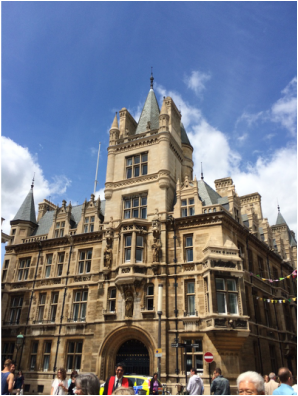
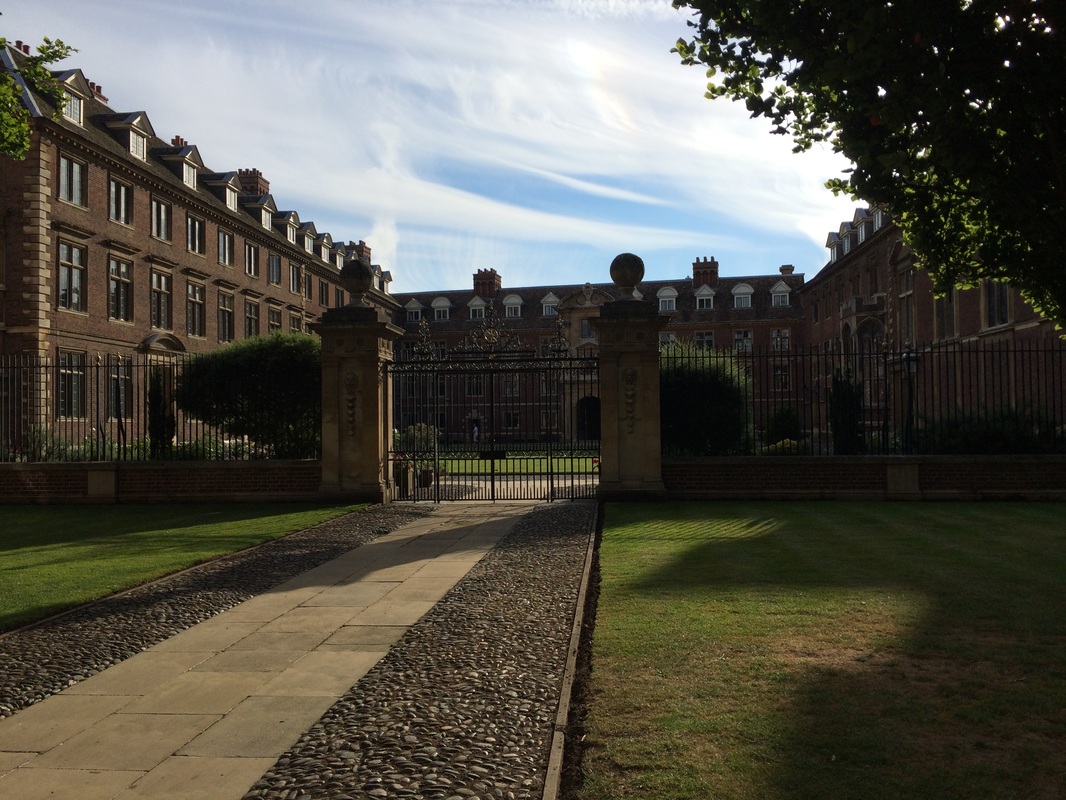
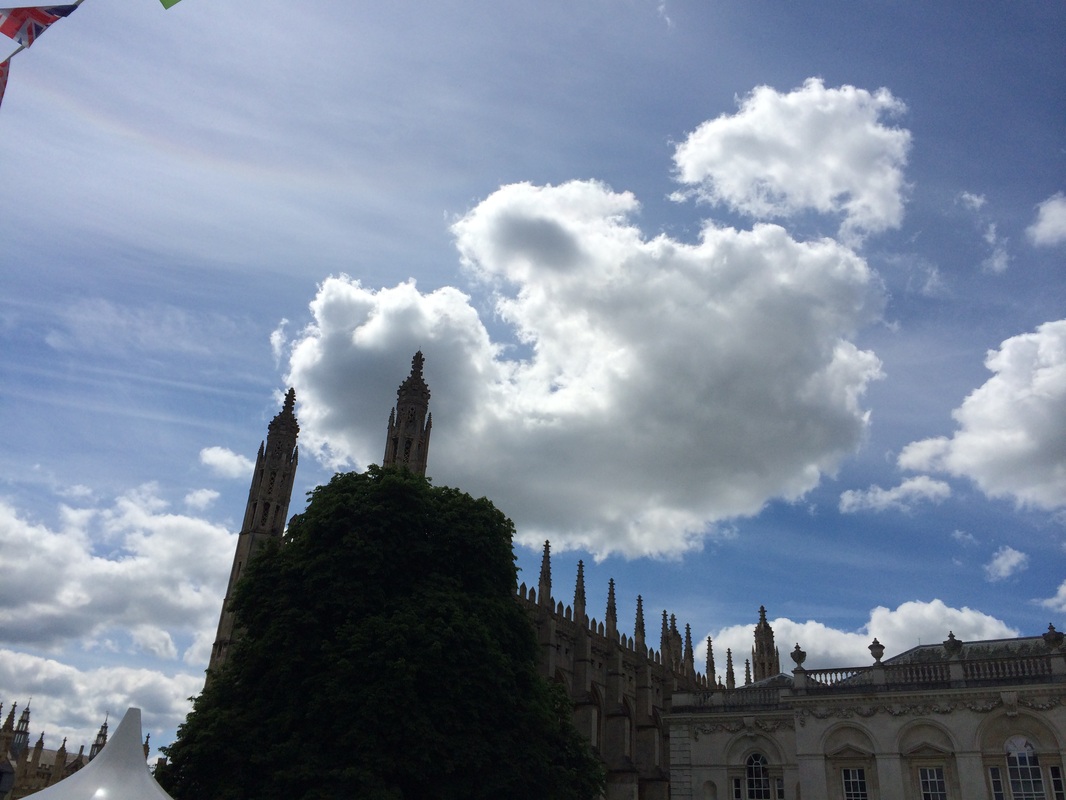
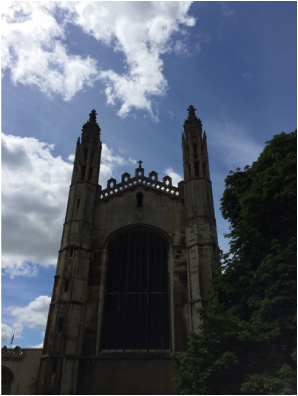
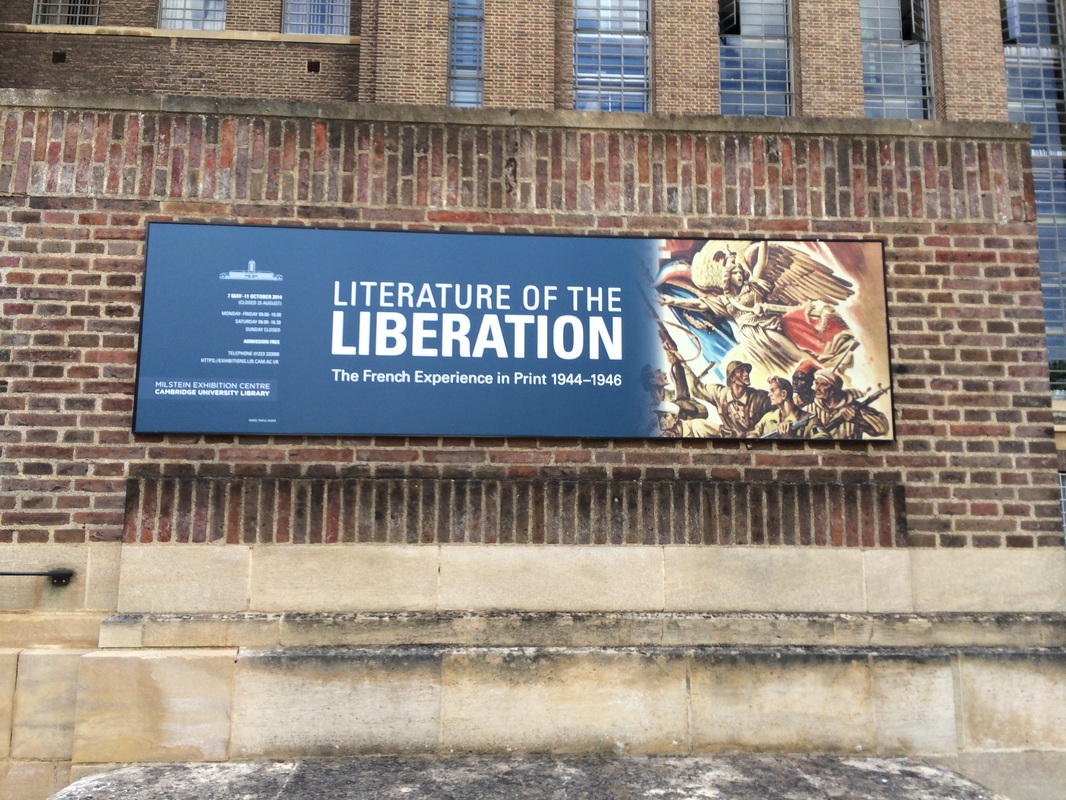
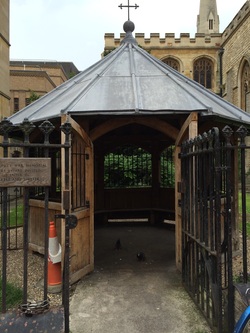
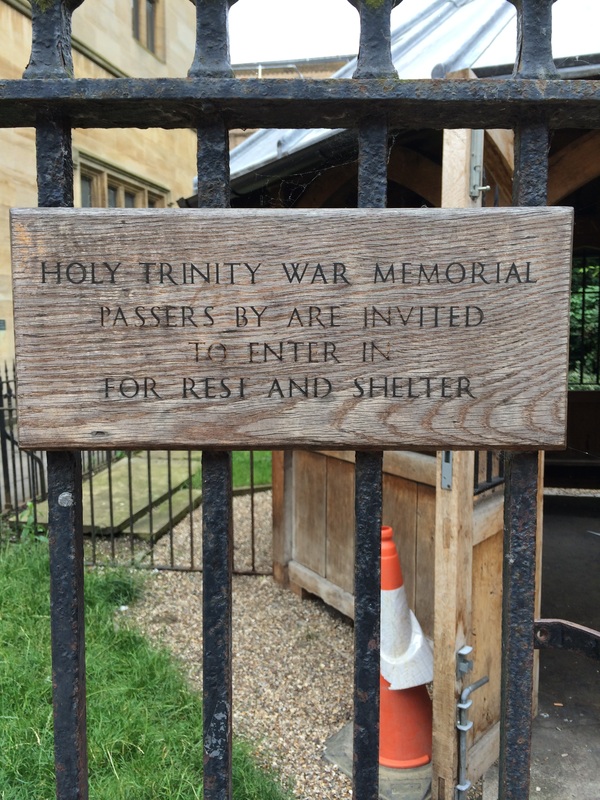
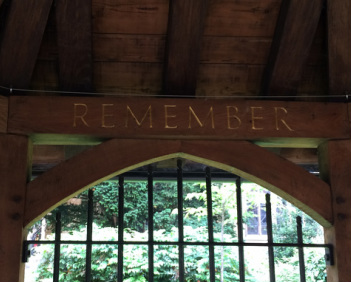
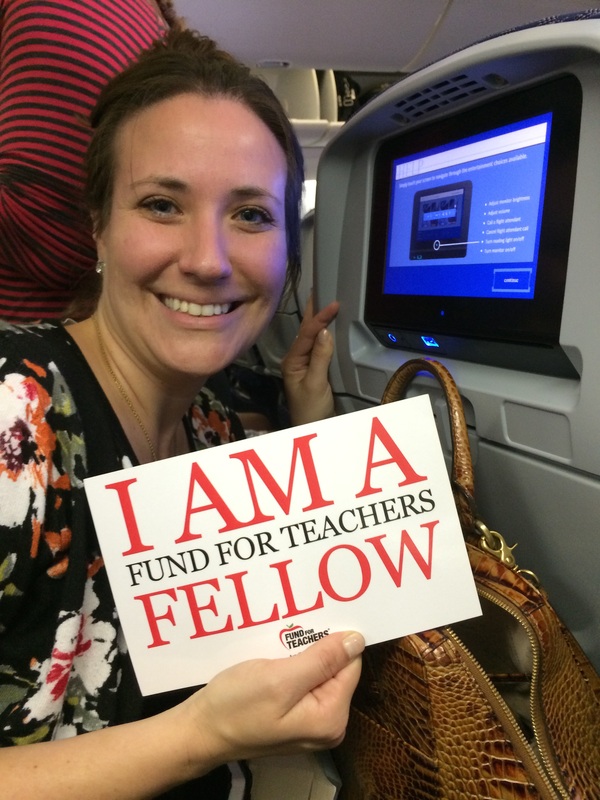

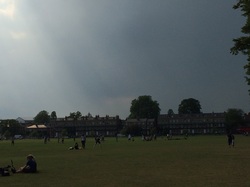
 RSS Feed
RSS Feed